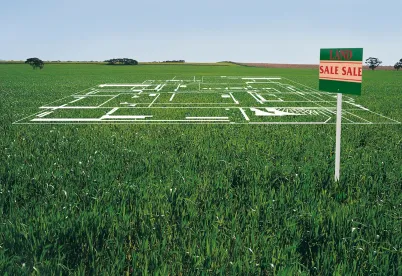Property boundaries have great significance in law and life. Julius Caesar crossed the Rubicon, the boundary between Gaul and Italy in violation of Roman law, and nothing was the same for him thereafter.
The recent North Carolina Court of Appeals’ decision in the case of Parker, et al. v. Town of Ervin, et al. (September 15, 2015), reaffirms the importance of property boundaries. They make a difference.
In Parker, the plaintiffs attended the Town of Erwin’s Christmas Parade. When the Parade was over, they started walking toward a restaurant. It was after 8:00 p.m. and the sun had set at 5:01 p.m. Their son was struck and died while crossing a private alley because, allegedly, among other reasons, the alley was unlit.
The plaintiffs sued the owner of the building adjacent to the private alley, alleging that the property owner had been negligent because he had not installed an outside light on his building to light the alley. The trial court dismissed the claim and the North Carolina Court of Appeals affirmed.
Generally, a property owner’s duty extends only as far as his boundary line. The owner has a duty to exercise reasonable care to assure his property is free of dangerous conditions. Land located on the other side of the boundary line is not under the owner’s control and therefore, the owner has no duty, even when he knows a dangerous condition exists on adjacent property, to cross the boundary. He need not cross the Rubicon to restore order in Rome.
Like Caesar crossing the Rubicon, when the property owner crosses his property line, it has consequences. The property owner may be liable for injuries occurring on other people’s property. For example, when syrup from the owner’s candy company flows onto adjacent property causing a dangerous condition, the adjacent property owner is liable.
In Parker, darkness was not caused by the adjacent property owner; it was dark because the sun had set. While a light directed toward the alley from the adjacent building might have improved the visibility, the adjacent property owner had no duty to direct light onto his neighbor’s property.
What if the adjacent neighbor had installed and directed a light toward the private alley, could the incident have been avoided? Perhaps, or perhaps the light causes glare, blinding the driver or the child. In that situation, the property owner crosses the Rubicon and is responsible.
As Caesar learned, it is safer to stay on your side of a boundary line.




 />i
/>i

